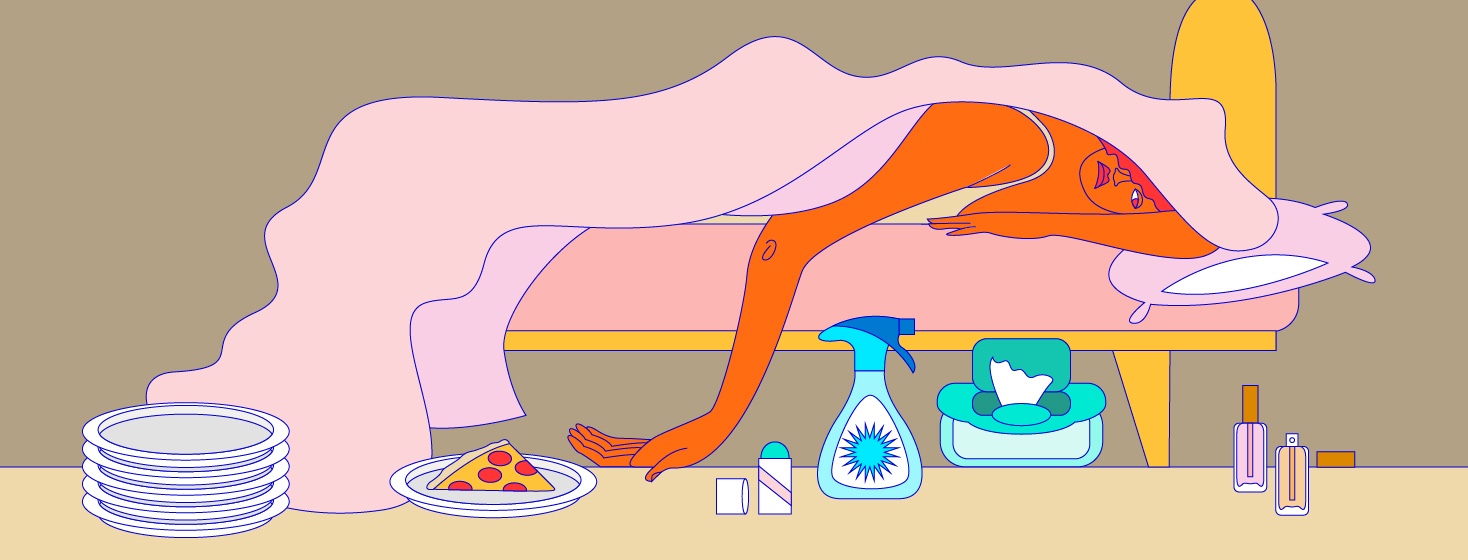3 Unusual Strategies for Coping with Depression
Disclaimer: I am not a health professional and the listed topics are suggestions and not to be taken in lieu of medical advice
Depression and finding tips to cope can be tricky. Many people with lived or living experience of hepatitis C have also experienced effects on their mental health. Depression and anxiety are difficult to talk about and while mental illness is becoming more accepted, there is a long way until that belief is uniform. While it is normal to have brief periods of feeling depressed or anxious due to an event, experience, or emotion, if those feelings linger for longer than usual you may consider talking with a health professional you trust.
These suggestions are based on my personal experiences and mental health diagnoses combined with discussions with others who experienced similar difficulties addressing self-care and tricks learned to combat the symptoms experienced while in depressive episodes. Lots of tips were also gleaned through years of researching and reading on lived experiences of these illnesses.
These tips and tricks may not work for everyone during a mental health incident. The tips identified in this writing are intended to assist in maintaining a basic level of self-care and responsibilities during a mental health episode. Many articles on the internet and in print regarding self-care in depressive or anxious events focus on completing the task (such as doing dishes) but neglect to focus on finding solutions should particular actions not be achievable.
When the mess and garbage is overwhelming
A messy house can be a huge trigger for anxiety and depression. It can be almost impossible to attend to while in a state of depression. When the dishes are piling up and garbage is overflowing, life feels chaotic and out of control. While depressed it can be impossible to muster up the energy to attend to chores.
During non-episodic times, I started adding anti-bacterial wipes, window cleaning wipes, paper plates, and fabric spray to my shopping list. When the days of incapacitating depression or anxiety hit, I was able to do a quick wipe on surfaces and remove odors from a bed or couch. Doing this has helped me immensely! Dishes piling up can often feel like a failure to do basic tasks when in the height of the depression, so having a store of paper plates ready can help alleviate some of this anxiety.
When having a shower is impossible
In the worst moments of depression, many people report having difficulty practicing proper hygiene relating to their physical body. Neglecting these important needs can often cause further descent into depression. To make it as easy as possible to maintain baseline personal hygiene during a depressive episode, I relied heavily on a few key items: dry shampoo, baby wipes, scented deodorant spray, and mouthwash!
Too exhausted to shower? Use baby wipes to clean your body and dry shampoo to make your hair look and smell fresher. A scented deodorant spray can also help with unpleasant body odor. It also helps with smells on clothing, if doing laundry is just not feasible. What if your bed has seen better days and smells? Changing or laundering the sheets may seem impossible, but shaking off the sheets and spraying some Febreeze goes a long way!
When unable to respond to emails or reach out
Social isolation can be a by-product of experiencing an episode. Throughout the years of reading about others' lived experiences of these illnesses, a common fear was observed. A crippling fear of answering phone calls, responding to messages from employers, friends, or family, or reaching out for help is common for persons living with anxiety or depression.
A suggestion I found to be extremely helpful is taking time when I feel good to pre-prepare fill-in-the-blank responses for messages from employers or regarding social obligations. For example, I would prepare messages about taking time off work, being unable to attend a social event, or canceling an appointment or commitment. The responses can be stored in a notebook or a note-taking app on your phone.
Setting alarms to send these messages can be very helpful too, as well as utilizing your email software’s ‘auto-send’ feature if available. This can also be applied to reaching out for help. Setting an alarm and sending a prepared message in an email or text message can be the difference between seeking help or not. If phone calls are a trigger, searching google for emails for the services you use may also be helpful!
Harm reduction applied to depression
In the past, mental illness was not talked about as publicly as it is now. Persons who experience a mental illness may have also experienced stigmatizing and horrific treatment at the hands of peers, professionals, close friends, and family. The belief of this author is not to cosign detrimental behaviors, but to apply harm reduction principles to mental health crises to reduce distress and lessen the severity of potential future events.
It also helps persons struggling with symptoms of acute mental illness maintain a bare minimum of positive social and physical wellness. With the aim to reduce the severity of common triggers so that moments of depression and anxiety are less destructive. Over time, and with much practice, these tips helped reduce my depression and allowed me the freedom from anxiety to seek professional help.

Join the conversation